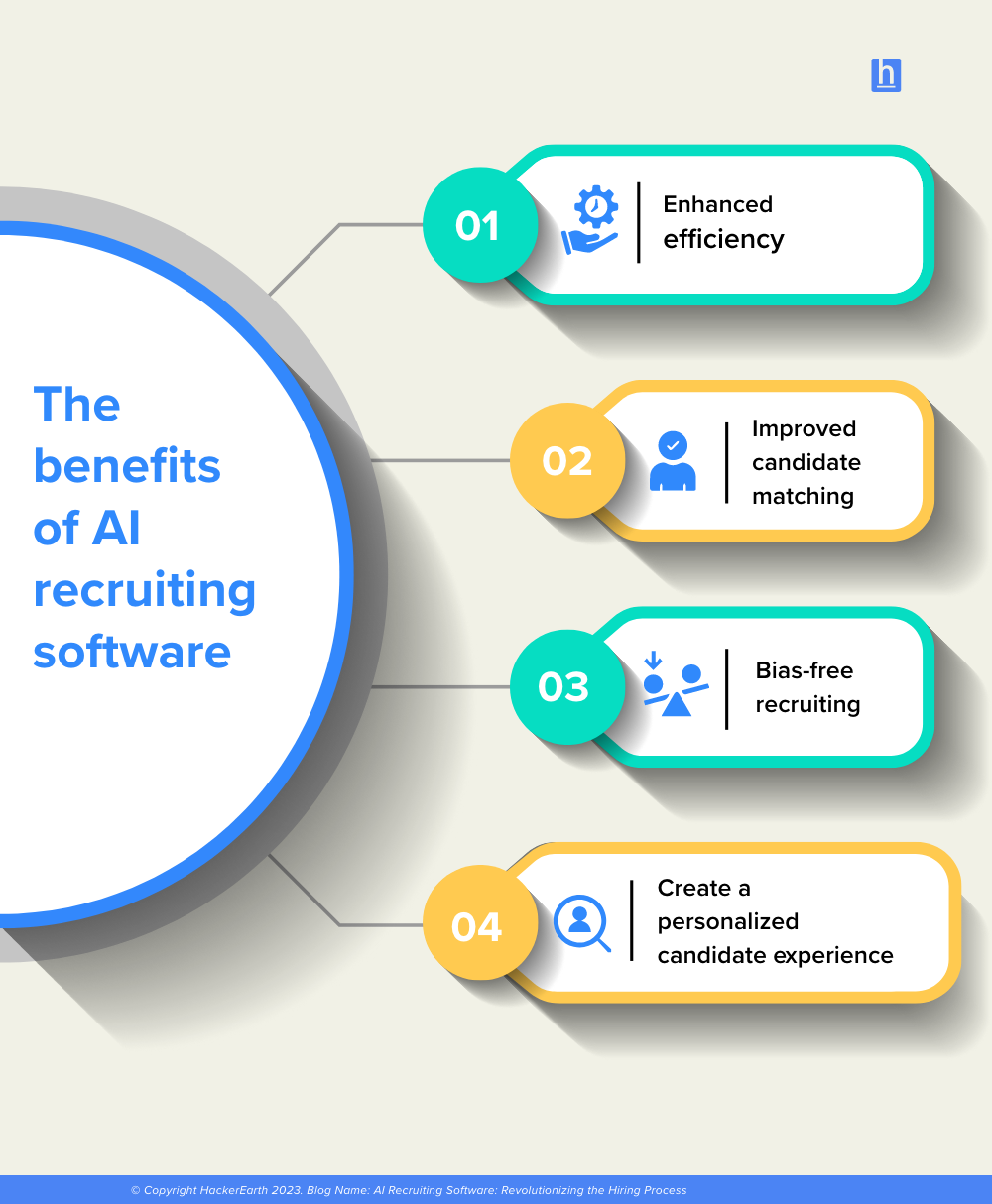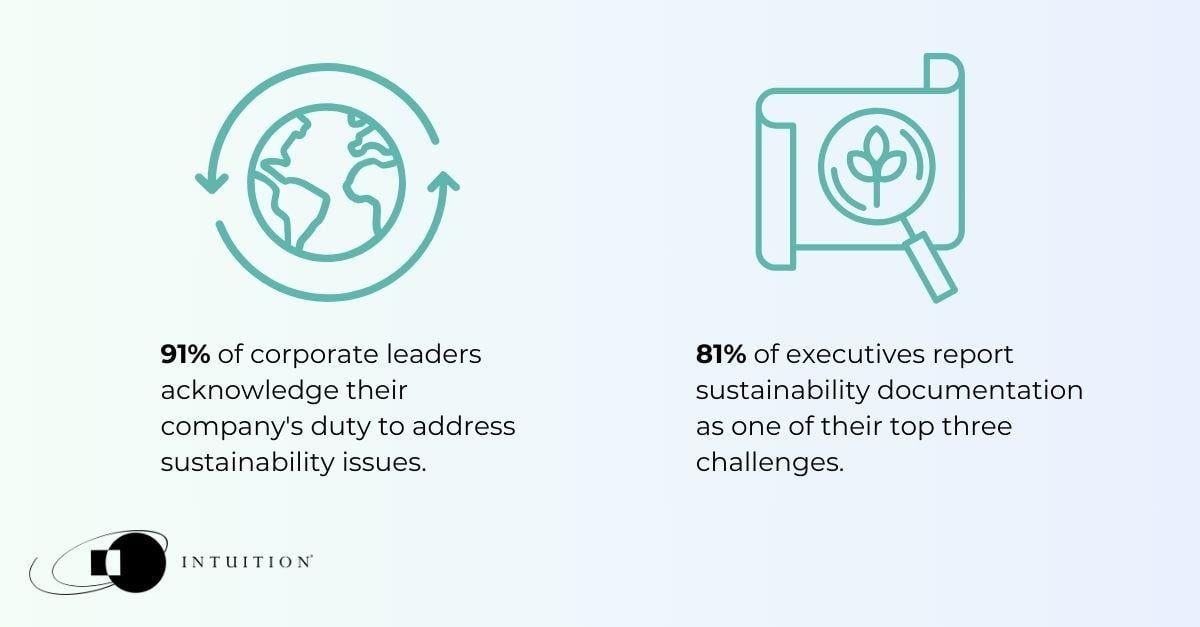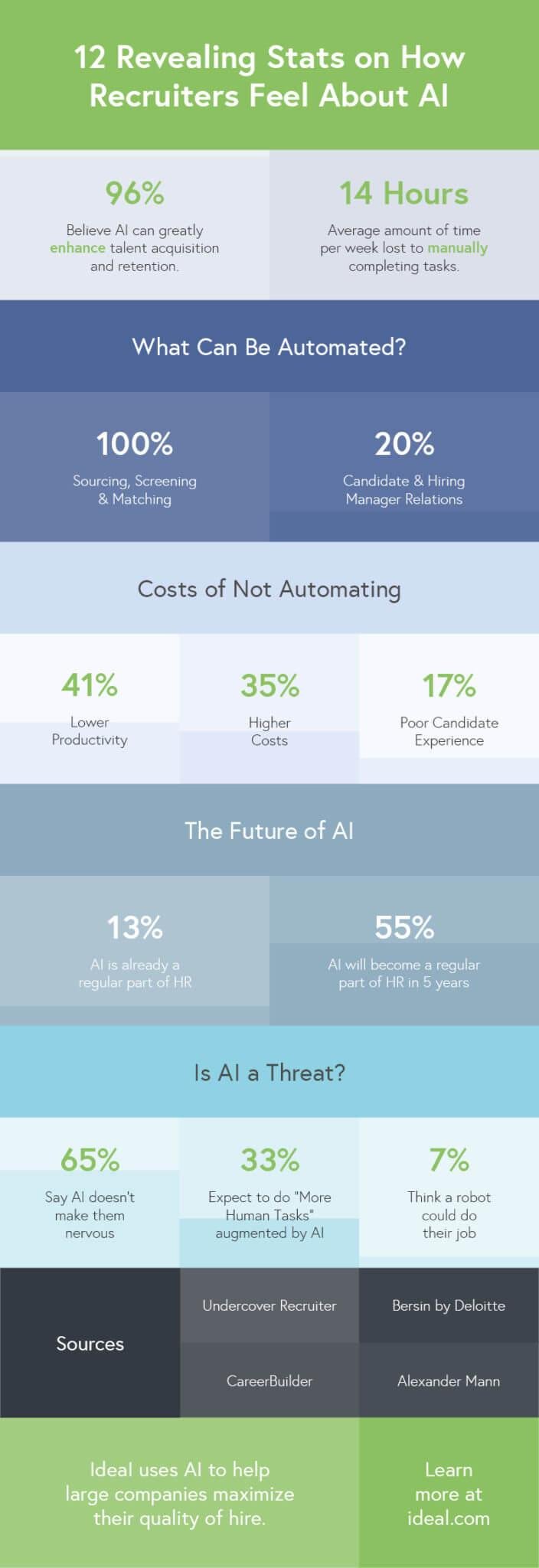Recruiters play a crucial role in the job market, serving as intermediaries who connect employers with job seekers. Their main responsibility is to identify, attract, and hire suitable candidates for job openings within organizations. In fulfilling this role, recruiters enable businesses to find the talent necessary for growth and success, while also helping individuals discover employment opportunities that align with their skills and career aspirations.
The hard truth about recruitment
Did you know that it takes 44 days on average in Europe to fill a job opening? It is even longer for fields like IT.
This illustrates the significant time and effort invested in the hiring process; companies with high hiring demands often face challenges in filling their vacancies promptly. Recruiters aim to expedite this process to ensure businesses are adequately staffed and competitive. They typically possess exposure to diverse candidate profiles, enhancing their ability to comprehend client requirements and effectively identify suitable professionals for specific roles.
In theory, recruiters are expected to excel in sourcing talent, evaluating suitability, screening candidates, and presenting relevant profiles to clients, surpassing the clients' own capabilities in these aspects.

Same as Marketers, when your family asks you what do you really do, answers are futile. Source: Bond Consultants.
The different types of recruiters: not all recruiters are born the same
From the overarching category of "recruiter," we can distinguish three main groups: in-house recruiters, agency recruiters, and freelance recruiters. Despite working in different types of organizations, all share the common goal of recruiting suitable candidates. Within these groups, recruiters often specialize in specific areas such as marketing, IT, SAP, sales, and more. However, the fundamental process of recruitment remains largely similar across these specialties
Agency recruiters:

The recruitment industry is growing steadily, with projections for Europe of the market growing from €7 billion today to €12 billion in 2028. Source: Market Research Intellect
Agency recruiters are often at the forefront of adapting to market demands, given the continuous evolution in the types and volumes of profiles sought by companies. They are typically the first to identify emerging trends and skill gaps, and they frequently adopt new tools and techniques for sourcing candidates. For many recruiters, their career trajectory begins in an agency setting, where they gain foundational learning and experience before potentially moving to in-house roles or transitioning to freelance work. Therefore, agency recruiters are pivotal in shaping industry practices and staying agile in response to changing market needs.
In-house recruiters:
Companies with a sizable amount of hiring needs, might want to build their own recrutiment team. The internal recruiters that work as employees inside an organisations are usually called in-house recruiters. In a way, they are like agency recruiters but with only one client. This is sometimes viewes as an upside, as the stress is lower but it can also be a liability. Periods with low hiring needs or with layoffs might put in risk whole talent acquisition departments in some companies.
Likewise agency recruiters, in-house recruiters' role is to make sure they find applicants who are a good fit for their company. To do so they collaborate closely with hiring managers to understand the needs of the roles and specially understand the culture of the company, see if there's a "culture fit" to prevent a high turnover. In-house recruiters are also known as Talent Acquisition specialists in today's recruitment landscape, but one might find them under other names used are Headhunter, Talent Consultant or Talent Scout among others.
Freelance recruiters:
Freelance recruiters are independent professionals who have a portfolio of clients, or perhaps just one client, but have not created their own agency and do not want to work in-house. Their job is the same as other recruiters: finding good candidates. Generally, they are experienced recruiters who have worked in agencies or in-house and are now confident enough to operate independently and succeed in the market without a formal structure.
Freelance recruiters often have extensive networks of candidates and clients built over the years, making them a valuable resource for companies that do not want to commit to an agency or hire a full-time in-house recruiter.
The day of a recruiter
Finding candidates
The existencial purpose of a recruiter is to find the right candidate for a specific job offer. While recruiters might build a network of candidates and meet some without an immediate role in mind, they usually engage with candidates to fill a specific vacancy. Consequently, a significant portion of their day is devoted to this task.
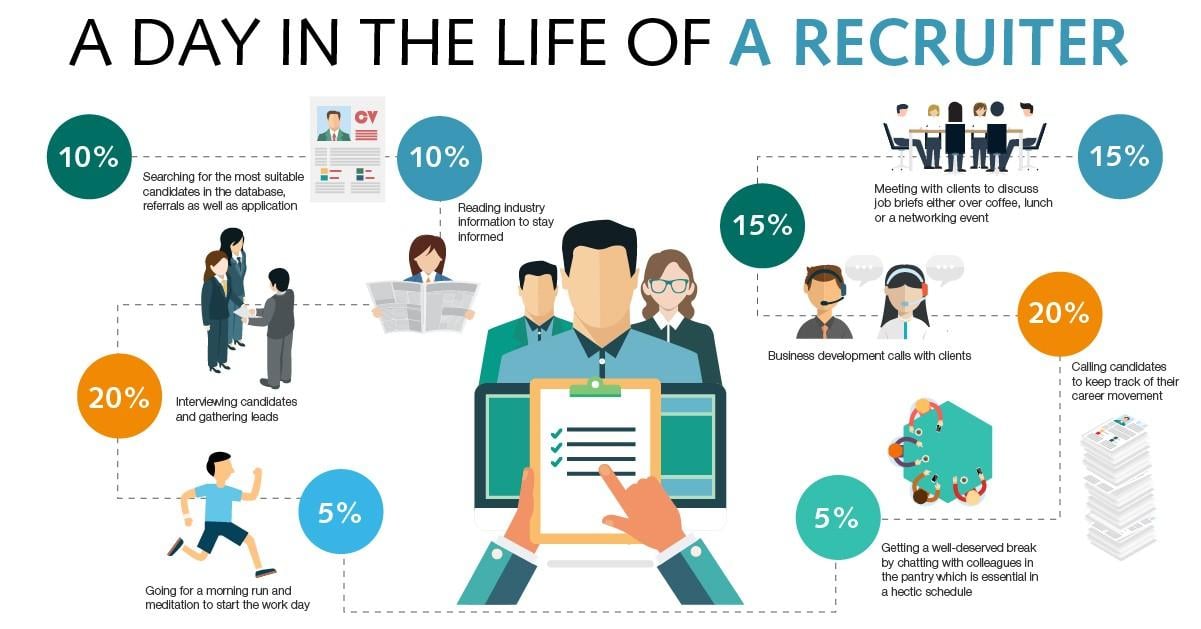
Actually, a much harder job than anyone outside of recruitment realises. Source: linkedin
The first step is to find good candidates to screen. There are two types of candidates: active and passive. Active candidates are theoretically easier to spot as they expose their availability on LinkedIn, through their social networks, and by applying to job offers. Passive candidates are logically more difficult to find since they are not actively looking for a job and typically need to be headhunted.
Recruiters use a variety of techniques and tools to find both types of candidates, such as job boards, social media, online communities, proprietary databases, external databases, their own experience, events, networking, and more.
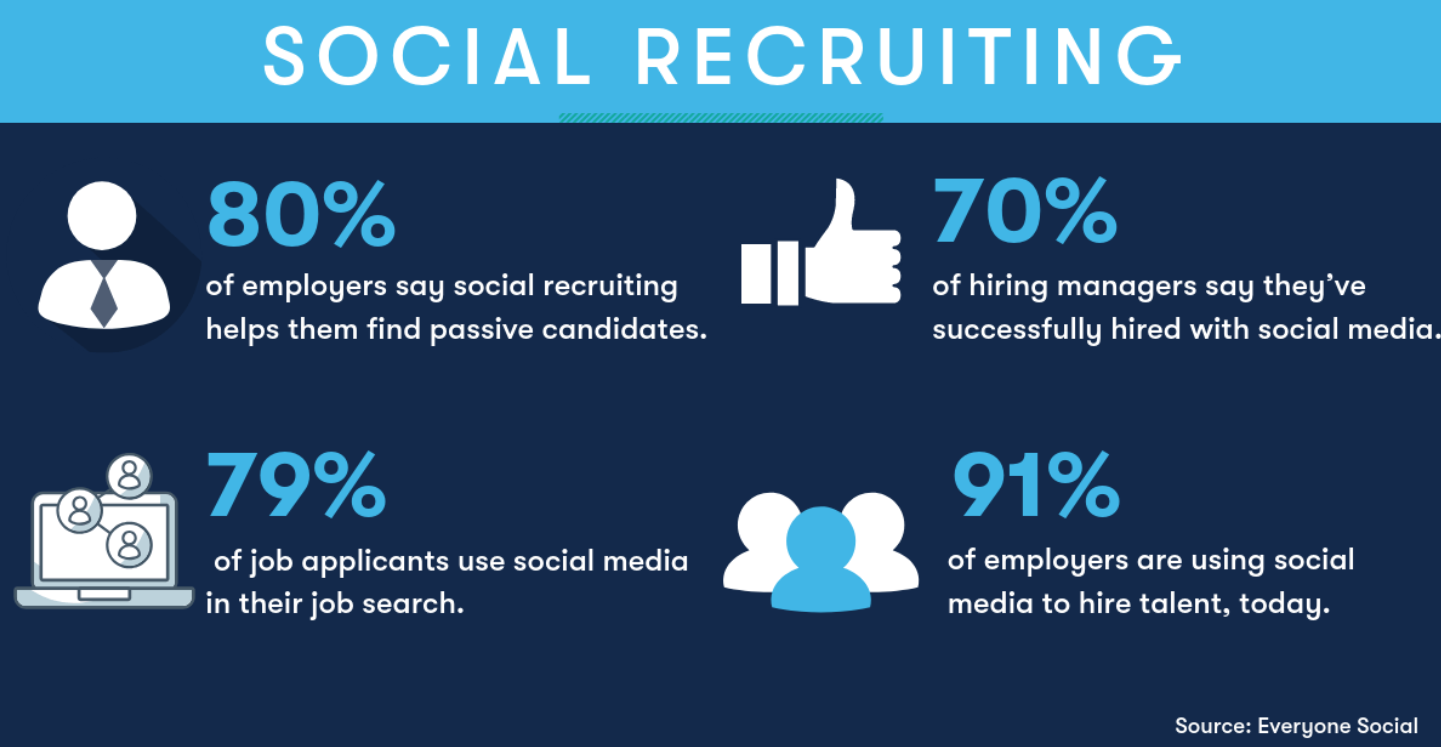
Social Media, and specially LinkedIn, have changed the recruitment game completely. Source: Skeeled
Filtering CVs. The art of Sourcing
Once cvs are collected, both from active and passive candidates, recruiters follow a clear process to screen resumes and find the right fit for a job. First, they understand the job requirements and key criteria. They then scan resumes for keywords and standout sections. In a detailed review, they look at work experience, achievements, skills, and career progression. Red flags like employment gaps or frequent job changes are noted. They also check for cultural fit, soft skills, and verify education and certifications. Top candidates are shortlisted for further evaluation, often using technology like ATS and skill assessment tools. This process ensures candidates meet the job requirements and fit the company’s culture.
At the end of the day, experienced recruiters scan CVs very quickly. They might spend only a few seconds on each CV because they can instantly determine if a CV is suitable. This efficiency is necessary because, on average, every job offer attracts hundreds of applicants. If recruiters spent even two minutes on each CV, their entire day would be consumed by reviewing CVs.
In any case, a significant part of a recruiter's day is spent on this task, which is known in the industry as 'sourcing' candidates
Screening candidates
Once a shortlist of potentially successful CVs is compiled, usually between four and twelve, recruiters reach out to conduct initial interviews, often called 'screens'. This part of their day is crucial, involving tasks such as writing emails, coordinating interview times, taking notes, researching, and conducting the interviews.
A shortlist is created from the screened candidates whom the recruiter considers a good fit and agrees to introduce to the client. The purpose of the shortlist is to provide the client with a list of viable candidates to begin the recruitment process
Submitting candidates
The submission phase demands meticulous attention to detail, as it involves coordinating interview times between the client and candidates—a responsibility squarely on the recruiter's shoulders. This phase also encompasses managing all communication, including emails and any necessary back-and-forth in case of changes or updates.
Offer and negotiation
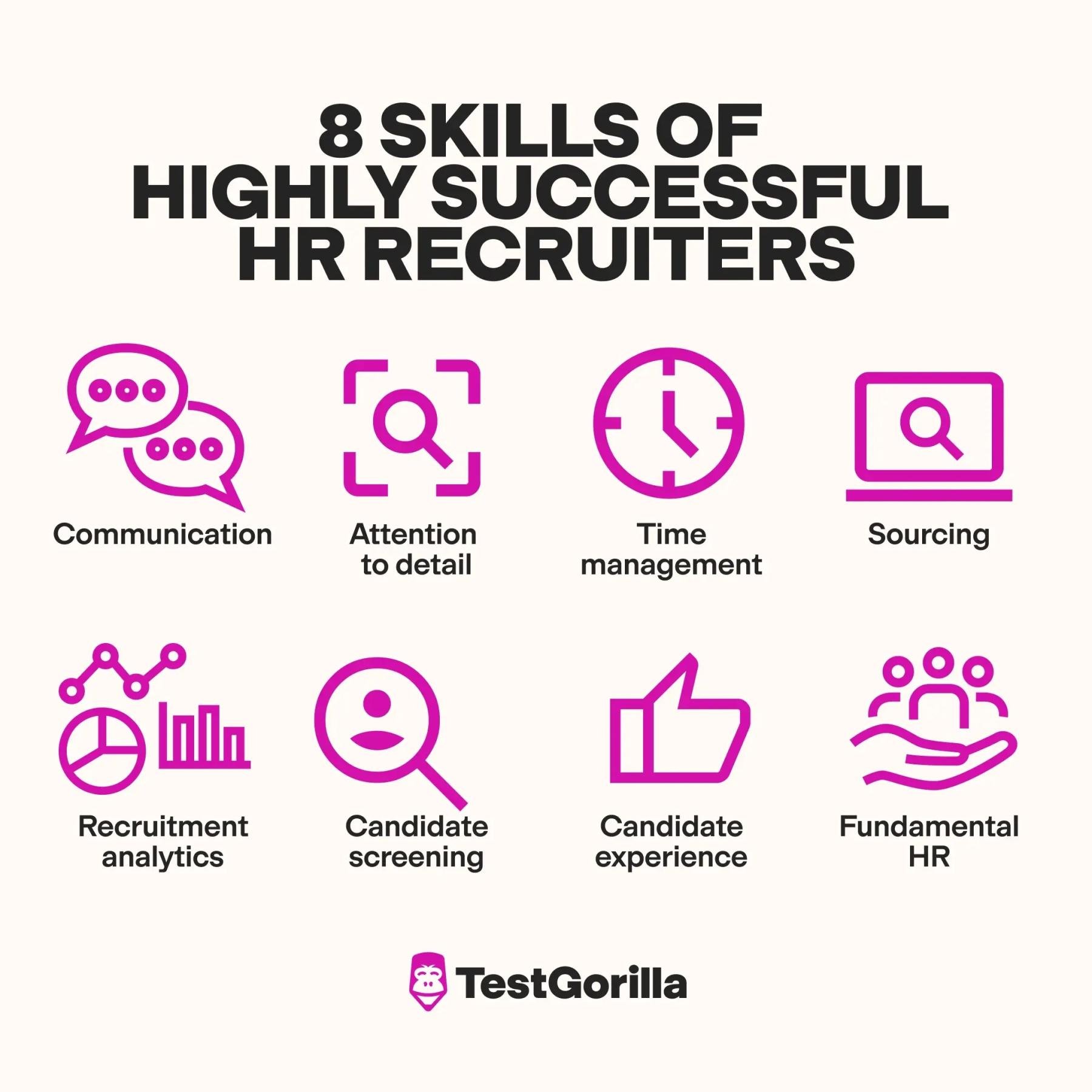
Each phase could become a profession, but they are all done by one person: the recruiter. Source. TestGorilla.
Admin - Sales tasks
An often overlooked aspect of a recruiter's role includes tasks not typically associated with their job description. These can range from administrative duties like maintaining orderly records and updating CRM systems, which are common across many roles, to the less recognized sales responsibilities integral to their work.
Unlike in-house recruiters, most recruiters engage in some form of commercial activity. This includes meeting with clients, actively pursuing business development opportunities, and sometimes even cold calling. While recruiters may not always identify themselves as salespeople, there is an argument to be made that they are indeed "selling" job opportunities to candidates and services to clients.
In essence, these sales-related tasks consume a significant portion of recruiters' time, especially during slower periods when job vacancies are limited.
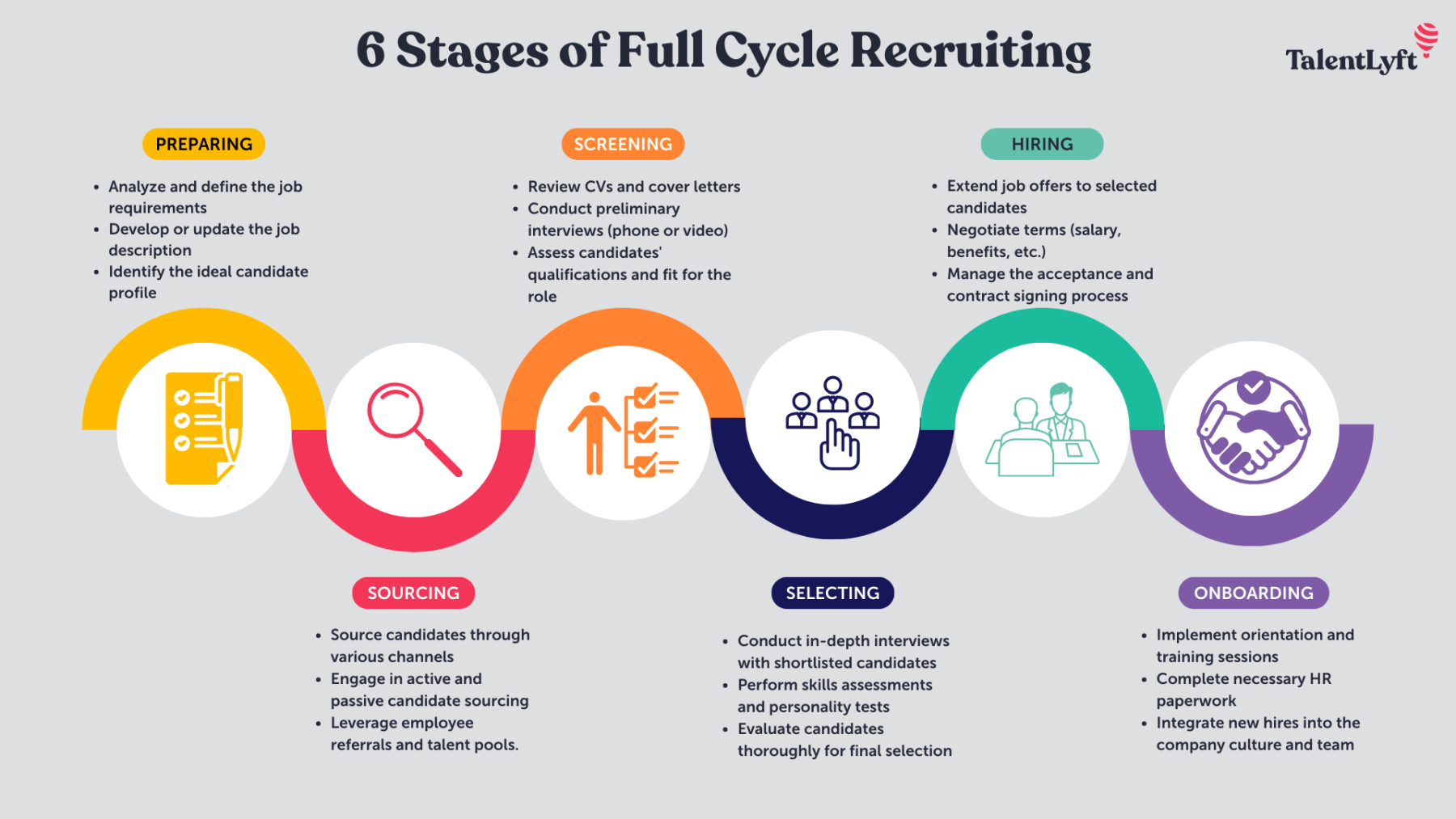
A long and winding process, just to hire a single person. Source: talentlyft
Conclusion
To conclude, recruiters are professionals responsible for finding, attracting, and evaluating candidates for job openings within organizations. Their duties include sourcing candidates, reviewing resumes, conducting interviews, and managing the hiring process.
While recruiting can be financially and personally rewarding, it often involves a degree of stress due to market uncertainties.
Recruiters play a crucial role in the job market and are difficult to replace with AI or tools. The nuanced and complex nature of evaluating candidates, considering numerous intangible factors, makes it challenging for machines to replicate their role effectively.
While recruiters may not be the perfect fit for every company's hiring needs, they can significantly simplify the process and save valuable time, especially when seeking skilled or senior-level candidates.
Prosperity
If you are seeking a job in digital or need assistance with your recruitment efforts, check out our website! https://www.prosperity.ie/
If you want to know more about the recruitment process at Prosperity get in touch!
Moreover, if you are looking for guidance on salaries, download our 2024 Salary Survey!


